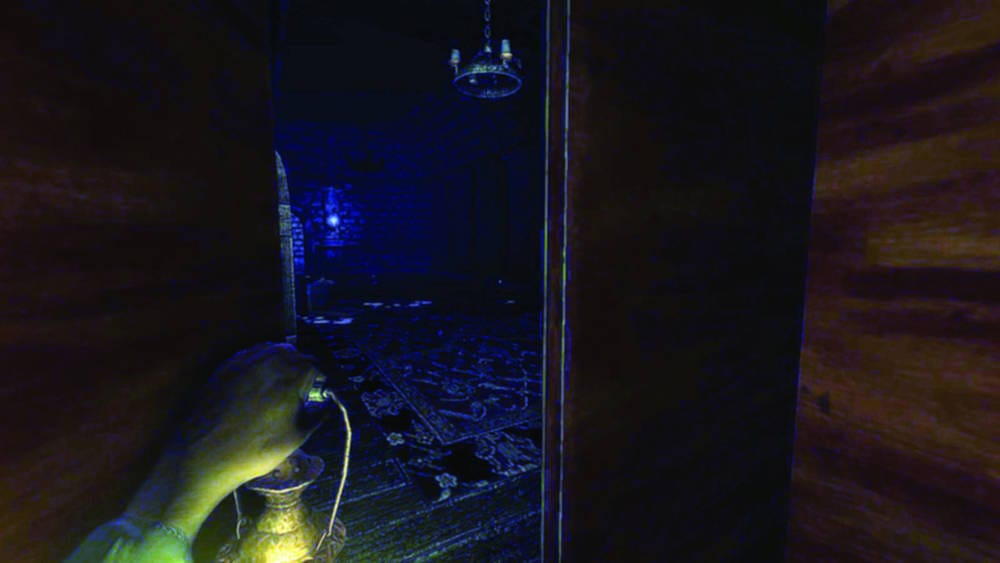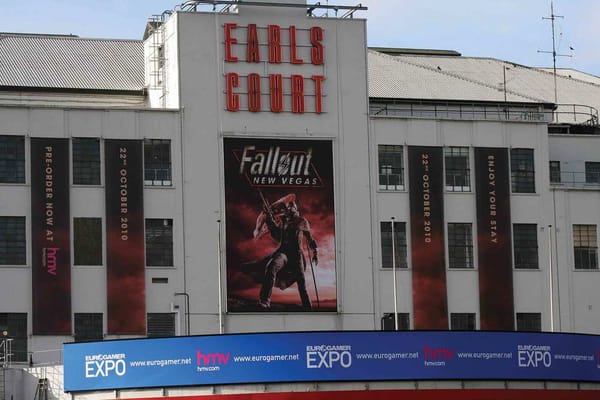Graphic survival horror: the forgotten genre
Amnesia: The Dark Descent will give you the willies

Amnesia: The Dark Descent is a graphic adventure survival horror game that had me swapping out trousers on a regular basis, and I shall endeavour to convey why this little-known gem is so worthy of attention. First though, a little introduction to Frictional Games, and the current state of the survival horror genre.
Frictional Games is a small independent video game company based in Helsingborg, Sweden (don’t feel you have to look it up on the map). The company’s only other product is a three-part series called Penumbra, which is... well, it’s another graphic adventure survival horror series, but so what? Frictional Games pulled off the genre so well in Penumbra that it was only logical that they should create a different game based on the same genre, only this time using an advanced version of their own HPL game engine (named after the initials of H. P. Lovecraft, from whom Frictional Games draw a lot of inspiration). Don’t worry if you haven’t heard about any of this before – I hadn’t either, until I stumbled upon the Penumbra series a few months back.
Most modern survival horror titles have a problem, a problem the big video game companies aren’t fixing. In a word (or five), they’re just not scary anymore. Take for example an old favourite of mine: Dead Space. If you haven’t heard of it (shame on you!), it is in essence a third-person survival horror game set aboard a giant space ship, where you play as a plucky space engineer fighting off the horribly mutated remnants of the ship’s crew. Now don’t get me wrong, Dead Space, along with other survival horrors out there, is fun – just not that scary. Sure, they’ll make you jump in your seat, but I could name a lot of things that make me jump that aren’t considered scary – my cat, for example. With the slew of fierce-looking weapons most survival horrors throw at you, gameplay devolves from a tense horror-filled nightmare to an elaborate monster shooting gallery. It’s fun, but it’s like ordering a banana split and receiving a fillet steak – I like fillet steak, and I’ll eat it, but I would have much preferred my banana-based dessert.
Amnesia: The Dark Descent delivers the metaphorical banana split. You play as some poor sap called Daniel who wakes up in a large medieval castle with no idea what’s going on – you could say he has amnesia. Luckily, Daniel was smart enough to write notes for himself which are scattered around the castle and along with flashbacks at certain locations in the castle, serve to advance the plot. For the first few minutes you’ll have no idea why you’re there, or what you’re meant to do. However, the first note you find soon puts you on track. It’s revealed that Daniel induced his own amnesia by drinking some sort of potion, and his former self instructs him to find and murder an old guy called Alexander, who’s hiding in the depths of the castle. Notes throughout the game add to the story, revealing more about Daniel’s past, but towards the end these snippets of text grow more confusing rather than intriguing and it often requires a second playthrough for it to make some sort of sense (which I’d recommend, if only to listen to the developer’s commentary).
Frictional Games realises that for a survival horror game to be tense, you actually have to feel like you’re surviving, and barely, not just strolling about the levels like you’re a T-1000
The game is set in the 19th century, and as such there’s no high-tech weaponry – in fact, there is no weaponry at all. You have yourself, a lantern, and the ability to run and hide like a scared child. Frictional Games realises that for a survival horror game to be tense, you actually have to feel like you’re surviving, and barely, not just strolling about the levels like you’re a T-1000. There’s no direct health bar in Amnesia, but opening up the inventory gives you some idea of what state you’re in: either ‘Healthy’, ‘Cuts and Bruises’, or ‘On Death’s Door’.
That is, if you can find any of the monsters to lose health from. Again, Frictional Games realises that everyone has different fears – a tarantula can either be a worst nightmare or an adorable pet. Amnesia seriously messes with your mind: footsteps can be heard above and behind you, you hear the cries of slavering beasts that never materialise, at some points your screen will distort, screams will be heard and suspicious red fluid will dribble from the walls, but each and every time an enemy will fail to appear. Yet you will always keep a watch behind you, always fearing something will pop out and require you to change your underwear. The phrase ‘less is more’ springs irresistibly to mind.
The crowning feature of Amnesia is how you deal with baddies when you do finally find them, or as is more often, when they find you. What do you do? You run and hide. In my first encounter I tried to run past the baddie only to be swiped in the head and knocked to the floor. Second time around I ran into a room, closed the door and hid in a cupboard as the game suggested just before the monster burst into the room. I even peeked out once or twice to see him rooting about. By the time I climbed out the closet again my heart was thumping like a darn drum.
Light is also another focal point – after all, there’s not much of it. Stay in the darkness for too long, or see too many monsters or disturbing visions and your sanity will drain, represented by a decaying brain in your inventory menu. The effect of low sanity will cause your screen to blur as if you dropped your glasses or lost your contacts which does begin to irritate towards the end (though you can become sane again by completing the game’s puzzles). Luckily you have a portable lantern at your disposal as well as tinderboxes to light up static stuff such as candles and wall-mounted torches. Both are limited resources but both can be found with a little careful searching. Be warned, though: light acts like a homing beacon for monsters trailing you. Bringing up my lantern in a shadowy corner by mistake and promptly being slashed to death was a mistake I never made again.
I could go on about the physics engine, but really all I’ll say is that it’s wonderfully immersive with the ability to rotate and move objects around quite naturally. If you enjoy survival horror, you really owe it to yourself to try Amnesia out. If you’ve not played much survival horror before, watch out – most other games will feel lacklustre compared to it after completion. If you play with headphones, and play at night (as is highly recommended by myself and Frictional) you’ll start forgetting it’s a game and you’ll truly be immersed in the disturbing world of Amnesia.








